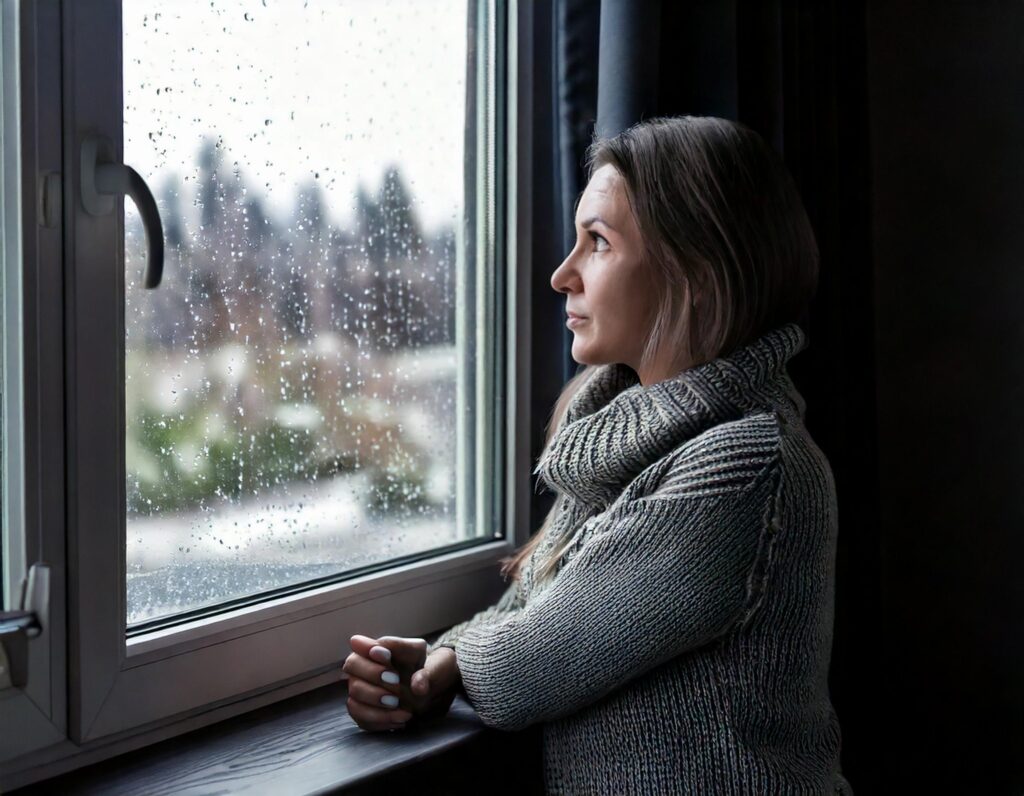
Have you ever noticed how the shorter days and colder weather can weigh on your mood? For some people, this shift in the seasons brings more than just a case of the winter blues. It brings a type of depression called Seasonal Affective Disorder (SAD). If you have ADHD, you may find that this winter depression feels especially intense. Let’s break it down so you can better understand what’s happening and what you can do about it.
What Is Winter Depression?
Winter depression, or SAD, is a type of depression that’s tied to the changing seasons. It usually begins in late fall or early winter and lifts as the days become longer in spring. The symptoms can range from mild to severe, but they often include:
- Feeling persistently low or hopeless
- Losing interest in activities you usually enjoy
- Struggling with low energy or fatigue
- Having difficulty concentrating
- Changes in sleep patterns, often oversleeping
- Craving carbohydrates and gaining weight
It’s more than just a seasonal slump; SAD can significantly impact your daily life.
The Causes of Winter Depression
The exact cause of SAD isn’t fully understood, but scientists have identified several contributing factors. One of the main culprits is reduced exposure to sunlight during the winter months. Sunlight helps regulate your body’s internal clock, or circadian rhythm, which affects sleep and mood. Less sunlight can disrupt this rhythm, leading to feelings of fatigue and sadness.
Another key factor is serotonin, a neurotransmitter that influences mood. Sunlight plays a role in serotonin production, so when daylight hours dwindle, serotonin levels may drop. This can contribute to the symptoms of depression.
Melatonin, a hormone that helps regulate sleep, also comes into play. During the darker months, your body may produce more melatonin, which can make you feel drowsy and less alert. Together, these changes in serotonin, melatonin, and circadian rhythms create the perfect storm for winter depression.
Why Winter Depression Is Especially Intense for People with ADHD
If you have ADHD, you already know that your brain processes mood and energy regulation differently. ADHD is linked to dysregulation of dopamine, another neurotransmitter that’s closely related to motivation and pleasure. When serotonin and dopamine levels are both out of balance, as they can be during winter, it’s like adding fuel to the fire.
Moreover, the disruption in routines during the winter months—such as spending more time indoors or having fewer daylight hours—can be particularly challenging. ADHD thrives on structure and stimulation, and the long, dark days of winter can strip away both, leaving you feeling restless and unfocused. Add in the fatigue and carb cravings that often come with SAD, and it’s no wonder winter can feel so overwhelming.
Treating Winter Depression Treated
The good news is that there are effective treatments for SAD, many of which can be tailored to support the unique challenges of ADHD. Here are some options to consider:
Light Therapy
Light therapy involves sitting near a specially designed light box that mimics natural sunlight. This can help reset your circadian rhythm, boost serotonin production, and improve your mood. For people with ADHD, incorporating light therapy into a morning routine can also provide a sense of structure and a positive start to the day.
Psychotherapy
Cognitive Behavioral Therapy (CBT) has been shown to be highly effective for treating SAD. It can help you identify negative thought patterns and develop coping strategies. If you have ADHD, working with a therapist who understands the condition can help address the overlap between ADHD and SAD symptoms.
Medications
In some cases, antidepressants may be prescribed to help balance serotonin levels. If you’re already taking medication for ADHD, your healthcare provider can help you navigate potential interactions and adjust your treatment plan as needed.
Lifestyle Adjustments
- Maximize Sunlight Exposure – Spend time outdoors during daylight hours whenever possible. Even a short walk can make a difference.
- Exercise Regularly – Physical activity boosts serotonin and dopamine levels, providing a natural mood lift.
- Maintain a Consistent Routine:- Structure your days to include regular sleep, meals, and activity times. This can help counteract the disruption that winter brings.
- Exercise daily – Brisk walks and other activities that get your heart rate up can help, but don’t exercise too close to bedtime.
-
Limit alcohol, caffeine, and heavy meals – These can interfere with sleep.
Winter depression can feel like an uphill battle, but with the right strategies, you can manage it effectively. Understanding how it interacts with ADHD is the first step toward taking control of your mental health. Remember, you don’t have to face it alone. Reach out to your healthcare provider, therapist, or support network to create a plan that works for you. You’ve got this.
References
- https://www.additudemag.com/seasonal-affective-disorder-adhd-comorbid-depression/
- https://chadd.org/adhd-news/adhd-news-adults/adhd-weekly-heading-off-seasonal-depression-when-you-have-adhd/
- https://add.org/beat-the-blues-how-adults-with-adhd-can-recognize-and-treat-seasonal-affective-disorder-sad/
- https://www.understood.org/en/articles/adhd-and-seasonal-affective-disorder
- https://pubmed.ncbi.nlm.nih.gov/27423070/


